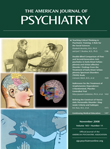It was the first lecture of the year at the Psychoanalytic Center, and the speaker was already at the podium. The newly renovated College of Medicine lecture hall, with all its modern gadgetry and technical accoutrements, seemed at odds with the ethos of the event. The room was filled with mostly older men, some seemingly painfully so. One man in particular seemed to embody this with his fragile body, wrinkled face, and slow, deliberate steps that came about only with the assistance of a cane. As he made his way across the room, I scanned the faces of the attendees, some of whom I recognized as lecturers from the residency program I had recently graduated from, and wondered what they were thinking.
I knew I had felt this way before. I was reminded of time spent in sundry Catskill hotels that my parents would sometimes take me to as a child—grand resorts with names like the Concord, Browns, and Kutshers. These places, once filled with life, energy, and expectations, were then past their prime, merely shells of what they once had been. I imagined analytic society events in their heyday—the prestige, the power, and the affluence of that bygone era seem to stand in stark contrast to the evening’s surroundings, where the only available refreshments were a few bottles of Poland Spring water.
Other memories surfaced as well. I remembered the modest synagogue in Lake Carmel, N.Y., which had provided social and spiritual sustenance to two generations of New York Jews, including my grandparents and mother, who sought a summer refuge from city life in then-rural Putnam County. I recalled having been acutely aware of certain realities as I sat in that aging synagogue as a young teenager, brought by my grandfather. Like the audience at the analytic lecture, most of the congregants were many decades my senior, and I was distressed by the profound difference in age. As I listened to them reflect upon the good times they had enjoyed there or provide updates on the health woes of an elderly member, I was troubled. I thought about loss and the passing of an era, a time that not only was gone but could never be reexperienced, and I wondered whether their efforts to find a part-time rabbi or their struggle to maintain a minyan would all be for naught, merely last-ditch attempts by a dying organism to prolong its existence. I remembered thinking then that perhaps I could take the train up once a month and attend services; if nothing else, I would be able to hear stories about my grandparents and prolong the inevitable if only by a little bit.
My consciousness was brought back to the present and to the lecture being given—an insightful analysis of the Oedipus story and this classic’s relevance to contemporary work. The presentation focused on the protagonist’s reversal of fortune—Oedipus’s having been transformed from an active subject to a passive object, having been changed from a powerful and seemingly indestructible king to a blind and feeble outcast.
As I sat and listened, I contemplated the ostensibly tragic trajectory of the analytic movement. Once the dominant paradigm within organized psychiatry, the psychoanalytic movement, like Oedipus, now seemed more like a blind, exiled, aged king. And yet it remains because it continues to contribute something valuable to psychiatry. As a system of understanding mental life that seeks to give meaning to successes and failures, reversals of fortune, aging, and loss and to explore conflicts regarding love, aggression, and sex, psychoanalysis continues to speak to patients and practitioners alike in meaningful ways. I was exactly where I wanted to be.

